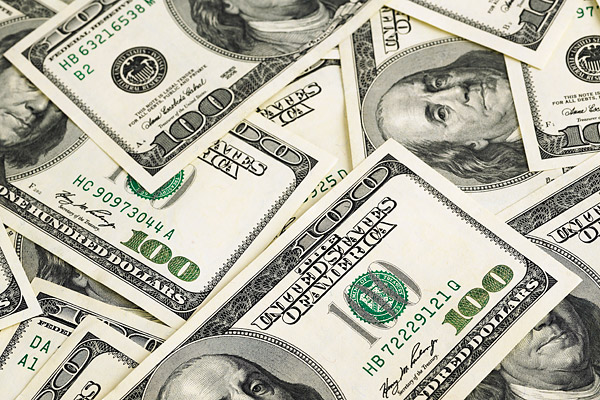
Americans haven’t been much good at waiting for things since banker A.P. Giannini popularized consumer credit a century ago. But what began as productive acceleration—a home to live in and build wealth; a car to get to work in and get ahead—has turned into alarming warp-speed consumption. It’s one thing to instantly hail a cab through the Uber app on your smartphone or get a meal delivered in 45 minutes via Seamless. You may actually need those things. But what about a pair of fetching high heels you read about in Vogue or the trendy home décor you see on a TV show?
Through technology you can have those things right now too. Yet things you want—not need—rightly belong in another basket, one that you consider for more than a nanosecond and for which you have put away money rather than purchase with plastic. This is the new world we live in, though. The cable station TBS and the retailing giant Target have just teamed up to allow viewers of Cougar Town, a popular sit-com starring Courtney Cox, to instantly buy dozens of items they see while watching the program. Check out the first shoppable episode archived at TBS.com/Target.
In another blow to delayed gratification, MasterCard and publisher Conde Nast last fall unveiled technology that will allow anyone reading Wired, and eventually Vogue, Vanity Fair and other magazines on a tablet to instantly purchase the items they read about by tapping their screen. This isn’t just for advertised goods, but for items described in editorial text as well. You can own that little black dress before finishing the sentence.
eBay and Amazon are testing same-day service. Wal-mart is looking at the concept. Google Shopping Express has a pilot program and hopes to deliver goods within hours of ordering from the likes of Walgreens and Toys ‘R’ Us. As Matt McKenna, the founder and president of Red Fish Media, a digital and mobile marketing agency, told The New York Times: “The whole world right now is about instant gratification.”
MasterCard is in hearty agreement. In announcing the deal with Conde Nast, Garry Lyons, chief innovation officer, said, “Today’s consumer should not have to think about the shopping process. When they see what they want, they should be able to get it as quickly as possible.” Let’s allow that to sink in for a moment. Do we really want impulse shopping at the speed of light?
Certainly, this isn’t what Giannini had in mind when he opened the doors to broader consumerism. The convenience of instant purchase cannot to be denied, but neither can the likely negative impact on individuals’ finances—and in the case of young consumers, their raw ability to develop sound money skills.
Decades of research show that impulse buying leads to difficult levels of personal debt, and that delaying gratification is among the most fundamental building blocks of smart money management. As this study shows, items you don’t need become less attractive with each day that you avoid them. Live by the rule that you’ll wait 24 hours before any non-essential purchase and you will wind up spending much less money—and not missing many of the things you didn’t buy.
Finally, how can I write about the importance of delayed gratification without mentioning the famous Stanford University marshmallow study in the 1960s? This bellwether study, repeated often and captured here in precious fashion, offered a group of youngsters a marshmallow and a choice: wait 15 minutes before eating the treat and they would be rewarded with a second marshmallow. Some kids caved quickly; others waited and earned the extra marshmallow.
Researchers tracked these kids for years and found that those who were able to wait for the bonus marshmallow had fewer behavior problems, lower stress, stronger friendships, and higher academic aptitude. Think about that the next time you are scrolling an article on your iPad and, right now, simply must have a fabulous new hat described in the text.
More Must-Reads from TIME
- Inside Elon Musk’s War on Washington
- Meet the 2025 Women of the Year
- The Harsh Truth About Disability Inclusion
- Why Do More Young Adults Have Cancer?
- Colman Domingo Leads With Radical Love
- How to Get Better at Doing Things Alone
- Cecily Strong on Goober the Clown
- Column: The Rise of America’s Broligarchy
Contact us at letters@time.com